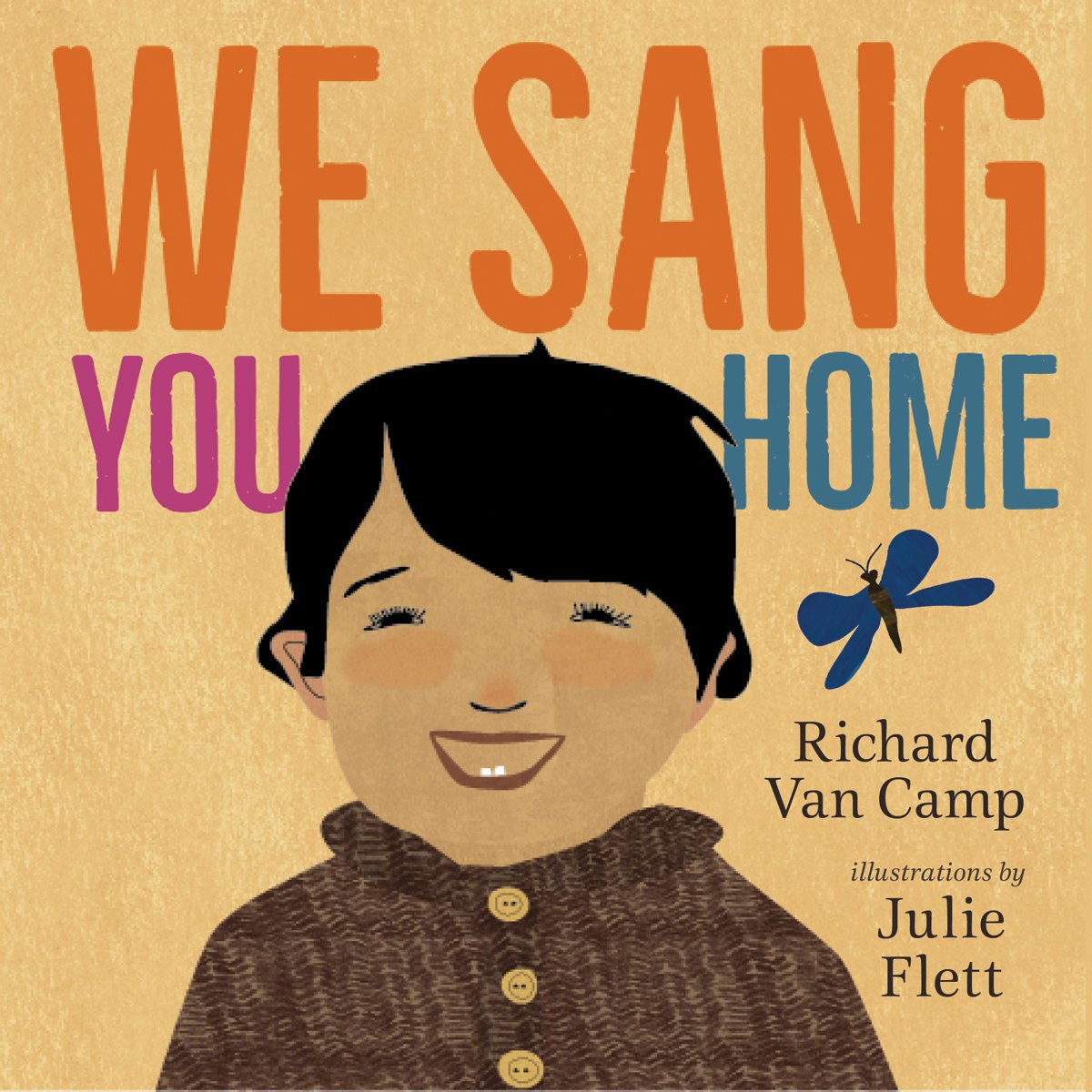August 9th is International Day of the World’s Indigenous Peoples, and 2019 is the International Year of Indigenous Languages. To honor and celebrate the literary achievements of indigenous authors, I interviewed Richard Van Camp, an accomplished Dogrib Tłı̨chǫ author of the Dene nation from Fort Smith, Northwest Territories. Over the span of his writing career, Richard has written 23 books, nine of those being children’s books.
What first inspired you to start writing?
A great question: I’ve always been a reader: comics, Heavy Metal Magazine, Stephen King, SE Hinton, Richard Brautigan. I realized when I was around 18 that no one was telling our story as Northerners, so I decided to start telling the stories of our town: Fort Smith, NWT. 23 years and 23 books later, I’m still going home in my mind and in my heart to dig deep and share just how beautiful and resilient we are.
Why did you decide to start writing children’s books?
I was asked by Harriet Rohmer of Children’s Book Press to write a children’s story, and I wanted to honour my mom, Rosa Wah-shee, by writing down a Tlicho Dene story about a man who liked to hurt animals. One day, he turns into a raven and realizes the path he had lived was a wicked one, so he starts helping the people from the other side. But I modernized it. That was “A Man Called Raven.” After that it was, “What’s the Most Beautiful Thing You Know About Horses?” Then it was our gorgeous baby books and graphic novels like The Blue Raven and Three Feathers.
How has your identity shaped you as an author and storyteller?
I’ve always been a great listener, and I think you need that skill to be a great writer and a great storyteller. People speak in code and in parables all the time. If you can listen, remember, and write what you hear down and keep going with that, your way is a magic carpet ride. My identity as a Tlicho Dene born and raised in Fort Smith, NWT, is rich with visiting, hosting, cooking, feasting, laughing, gossiping, “oh now’ing”, cherishing, honouring, reminding, nagging, being bossy, and knowing my place as an archivist and as someone who wants to honour. I was born to honour, is what I am trying to say.
“Kiss by Kiss,” “We Sang You Home,” “Little You,” and “Welcome Song for Baby” are all written in English and Plains Cree. Why is it important for you to include both languages?
We didn’t have access to our language growing up. We had to learn French. I love French, but I’m not French. I’m Tlicho Dene and all of my heroes growing up were Bush Cree, Dene, Tlicho, Slavey, Metis, Inuit–you name it! To work with different Indigenous languages and translators makes my heart bloom. This means that future generations have books in their languages. They have books in the languages of my heart. 🙂
What words of encouragement can you offer to parents who are interested in reading books in different languages with their children?
Do your best. This is Reconciliation. You’re doing a good thing. Mahsi cho–thank you. In the end, why wouldn’t you want to be remembered as a friend to the Indigenous people on which land you are raising your family. In the end, why wouldn’t you want to be remembered as an ally?
Richard Van Camp’s beautifully written and illustrated books “Kiss by Kiss,” “We Sang You Home,” “Little You,” and “Welcome Song for Baby,” written in both English and Plains Cree, can now be found in the Caribu library.
When you’re choosing a book to read with your child tonight, try reading one in a different language–let your child discover how interesting and diverse the world can be!


